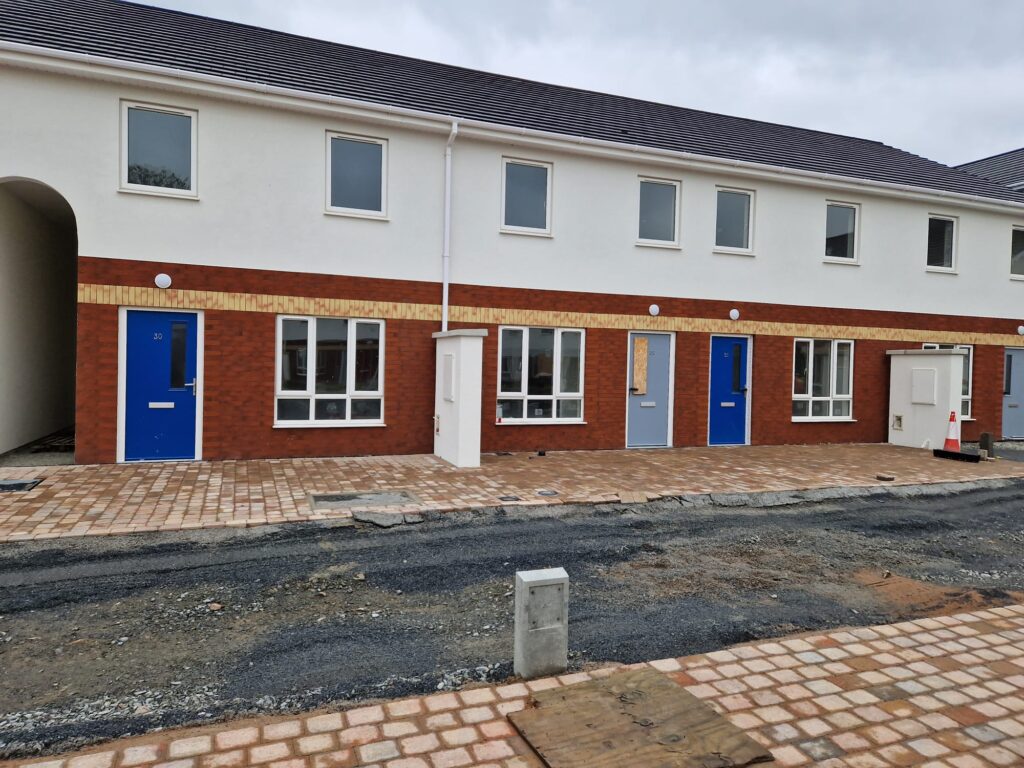Ireland’s New Planning and Development Bill

What we know so far – promises and pitfalls
Last month the Planning and Development Bill was approved by the Government. Long overdue, the industry was promised the most significant overhaul of the country’s planning system in decades. ‘Significant’ is a broad term. Yes, this is a large piece of legislation – the third largest in Ireland’s legislative history – but will it underpin the scale of genuine change needed? That is a question that still needs to be answered.
Most critically, this new legislation seeks to introduce statutory timelines for planning decisions, alter the workings of a re-branded An Bord Pleanála, and bring about several other reforms aimed at streamlining the planning process. Now, within Lotus IG, we are certainly not planning experts, but we are well-placed to hear the concerns raised by our homebuilder clients right across the country.
In a nutshell, for anyone who has yet to read about it, the Planning and Development Bill is a fairly comprehensive update to Ireland’s current planning laws, consolidating various disjointed regulations into one extensive but cohesive piece of legislation. The Bill seeks to provide a framework for planning while also realigning planning policies with Government directives. One of the headline features of the Bill is the introduction of mandatory, statutory timelines for making planning decisions. For local planning authorities, the timeline is set at eight weeks, while for An Bord Pleanála (soon to be renamed An Coimisiún Pleanála), it ranges from 18 to 48 weeks, depending on the complexity of the application. Failure to meet these deadlines may result in various consequences, including fines and reviews of the planning authority in question.
The Challenges of Speeding Up Planning Decisions
While the Bill aims to expedite planning decisions, the reality is not as straightforward. According to TheJournal.ie, as of August 2023, only 27 percent of planning appeals processed by An Bord Pleanála were resolved within the 18-week timeframe, with an average processing time of 47 weeks. These figures highlight a substantial gap between the proposed timelines and the actual outcomes. Such discrepancies may undermine the Bill’s objective of expediting planning processes and could lead to frustration among builders and investors.
Changes to Judicial Reviews and Resident Associations
The Bill introduces significant changes to the judicial review process. While the public can still object (raise observations) to planning applications, they must exhaust all available appeal procedures before taking a case to court. Moreover, the grounds for a judicial review must remain consistent with the initial appeal filed with the planning authority. Resident associations face additional restrictions when pursuing judicial reviews. They must have a constitution, and a two-thirds majority of members must agree to proceed with a judicial review. These changes are meant to limit what has been perceived as “vexatious” reviews and reduce delays in projects.
The Bill has attracted criticism from planning experts, industry and from stakeholders. Notably, the Irish Planning Institute (IPI) has voiced concerns about the clarity and comprehensibility of the Bill. They worry that the Bill’s provisions could lead to internal conflicts between different levels of planning rules, potentially resulting in delays and suboptimal planning decisions. Environmental Legal Cost Scheme In addition to the changes mentioned above, the Bill introduces an Environmental Legal Cost Scheme. This scheme aims to make the cost of pursuing a judicial review of a planning decision more affordable by implementing a scale of fees. If an applicant wins, they can recover their costs in line with this scale, but if they lose, they may apply to the Environmental Legal Costs Scheme for legal aid, which will be means-tested. We have written here many times about the need for a balance of fairness when dealing with community challenges to proposed developments. Judicial reviews have highlighted the lack of a balance of fairness and, frankly, the new Bill does not appear to have achieved this balance either. As the Bill is set to become law in 2024 and will be introduced on a phased basis, only time will tell whether it fulfills its promises or falls short of expectations.
Ian Lawlor
086 3625482
Managing Director
Lotus Investment Group
